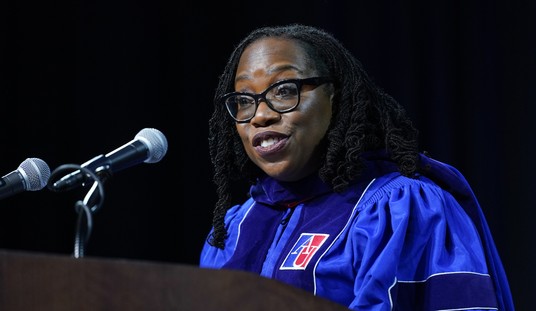Lawyers say that tough cases make bad law, and the Feingold-McCain effort to amend the Constitution is a good example of that. However, George Will turns a good case against the modification of the 17th Amendment into a bad case for its repeal. The irony comes from the case itself — Roland Burris — and the long, strange trip he took to the Senate.
The Feingold-McCain amendment would require that states hold popular elections when replacing Senators in mid-term for any reason — death, resignation, or in Obama’s case, election to other office. It would eliminate the power held by governors in 46 states to appoint a replacement for at least a period of time until the next scheduled election. In Wisconsin and three other states, the state law requires an election instead, and Russ Feingold wants to impose that requirement on all the rest. Will rightly sees that as a violation of federalism:
Although liberals give lip service to “diversity,” they often treat federalism as an annoying impediment to their drive for uniformity. Feingold, who is proud that Wisconsin is one of only four states that clearly require special elections of replacement senators in all circumstances, wants to impose Wisconsin’s preference on the other 46. Yes, he acknowledges, they could each choose to pass laws like Wisconsin’s, but doing this “state by state would be a long and difficult process.” Pluralism is so tediously time-consuming.
But Will runs aground when arguing against the substance of the policy:
Severing senators from state legislatures, which could monitor and even instruct them, made them more susceptible to influence by nationally organized interest groups based in Washington. Many of those groups, who preferred one-stop shopping in Washington to currying favors in all the state capitals, campaigned for the 17th Amendment. So did urban political machines, which were then organizing an uninformed electorate swollen by immigrants. Alliances between such interests and senators led to a lengthening of the senators’ tenures.
The very case before us makes that argument completely laughable. Are we to assume that a Senator appointed by the Illinois legislature would be somehow less prone to undue influence than one who won in a popular election? Especially if, as Will notes, the Senator remained accountable (and at risk for recall) to the legislature that appointed him? Regardless of whether the populace is “swollen by immigrants”, a public election has more sunlight by its nature than a conclave of elected officials in a state capital — or on Capitol Hill, as the Porkulus package amply demonstrated.
Will does point out the complex nature of the mandates structured in the original Constitution. The House represented the people, elected by popular vote every two years. The Senate represented the states, elected by legislatures every six years. The President represented both, in the amalgam of the Electoral College. The 17th Amendment did away with that balance, but then again, so did the evolution of the Electoral College from a near-parliamentary system of producing Presidents to a state-by-state popular vote mechanism that keeps the power of densely populated states somewhat at bay.
As our country evolved, and as it grew from a small collection of provinces clinging to a coastline, the popular vote became seen as the ultimate mandate for power in a government — and I’d argue that this evolution has its advantages. Under the original system, the popular vote only controlled one of three federal mechanisms; the other two were controlled by politicians. Burris actually makes the argument that the popular vote mandate would be preferable, if messier, than keeping the power to seat Senators with state lawmakers.
I agree with Will, though, that the states should make the decision on appointments and special elections, and not the Constitution. I disagree that sending it all back to the state legislatures would create a cleaner Senate. (via Brett’s Constitution)








Join the conversation as a VIP Member